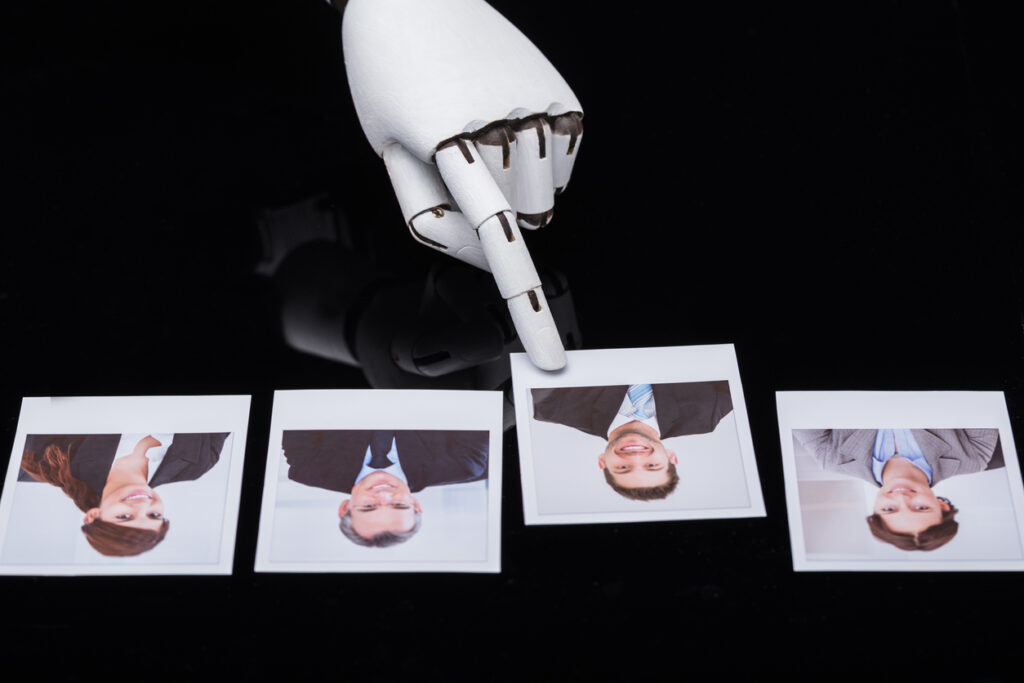There’s widespread caution among employers and job seekers when it comes to using artificial intelligence (AI) to aid the recruitment process, but AI can actually help us bring a more human touch to recruiting and HR.
With fear-mongering headlines predicting an employment apocalypse and the doom-laden warnings of tech luminaries like Elon Musk, you’d be forgiven for thinking that AI is the most threatening technology to emerge since the nuclear bomb.
When looking at some of these anxieties, it becomes clear that they don’t have so much to do with the AI itself. Rather, there is a distinct discomfort that people feel when technology starts advancing into roles that we consider the realm of people.
Despite this, the most exciting thing about AI is the way it can help us to bring more of our unique human traits to the office and to our lives – especially for HR teams and recruiters, who deal with some of the most emotive issues of the workplace.
Rage (quietly) against the machine
The disquiet many people seem to feel about AI comes through clearly in our own research.
Speaking to professionals across a wide range of industries early this summer, we found that over two-thirds (65%) believe it wouldn’t be fair if AI chose which candidates should go on to an interview process without any input from a human recruiter.
This is an intriguing finding. You might assume that an AI recruiter, free from the biases of a human one, might not be weighed down by the prejudices about education, gender, or career experience that might dog a human recruiter and make the process less fair.
AI can help eliminate many of the vital yet mundane process-orientated and administrative tasks that can monopolise large swathes of HR professionals’ to-do lists.
It’s clear that people find it difficult to put complete faith in a machine to determine these kinds of key decisions in the recruitment process by themselves.
A key factor here is likely to be the ‘black box effect’. AI and the key technologies that come under it, such as machine learning, are still relatively opaque, especially to those who aren’t technologists.
Job-hunting is a very emotive subject. It’s therefore understandable that the majority of people don’t like the idea of being judged solely by an enigmatic technology when dealing with something that can determine their future.
Moreover, over three-quarters (76%) said that they trust an AI recruiter less than a person to guide the job search process.
Once again, this seems somewhat surprising – the job search process involves a lot of administrative heavy lifting, from scanning CVs for key qualifications to scheduling interviews, and AI technology can be more accurate and efficient at completing these kinds of tasks.
Careers are deeply personal, and navigating the hunt for a new job can be a complex process, full of big decisions and uncertainty.
AI can’t bring the kind of wisdom and emotional intelligence to bear on the situation that a human can, but it can help recruiters and HR professionals to bring these qualities to the fore.
Using AI to be more human in the workplace
Historically, the development and adoption of new technologies have always eventually enabled us to ‘level up’, spending less time on monotonous tasks and more on those that truly tap into our human qualities – creativity, relationship-building, and strategic thinking, among others. For recruiters and HR more broadly, AI offers this potential.
The technology is already having an impact, with 63% of recruiters saying that AI has changed the way they do their jobs, according to another piece of research from Korn Ferry.
It’s no wonder, since AI can help eliminate many of the vital yet mundane process-orientated and administrative tasks that can monopolise large swathes of HR professionals’ to-do lists.
It seems that we fear that by increasingly using technology, we might lose our humanity along the way.
This leaves more time for HR people to focus on developing the kind of talent and culture that will support their business’s long-term success. It gives recruiters space to understand candidate’s core motives and personality quirks, to empathise with their desires, and vitally to develop a judgment on how they might fit (or might not) into their business.
Moreover, when paired with human judgment, AI can actually augment the recruiting process and create a better workplace.
For instance, working with a large financial institution to optimise its hiring process, we used data analytics to determine that the number one source of candidates (a nationally known job board) came fifth in terms of producing actual hires.
This insight led the client head of talent to move funds from the job board contract over to create an employee referral programme.
This might appear like a purely pragmatic move on the surface, but before the application of AI to this problem, lots of people were attending interviews for jobs that they were, in some respect, not suitable for.
Imagine the level of frustration this must have produced, the wasted time that job seekers could have spent at interviews at other businesses where they might have had a higher chance of success.
Cyborgs
It seems that we fear that by increasingly using technology, we might lose our humanity along the way.
It’s worth remembering, however, that AI actually offers the opportunity for recruiters and HR professionals to bring more of their unique human traits into the equation – whether that’s freeing up time to focus on higher-level tasks or helping people to bring more of their strategic and analytical skills to the fore.
Interested in this topic? Read Digital transformation: three ways HR can use AI more effectively.






